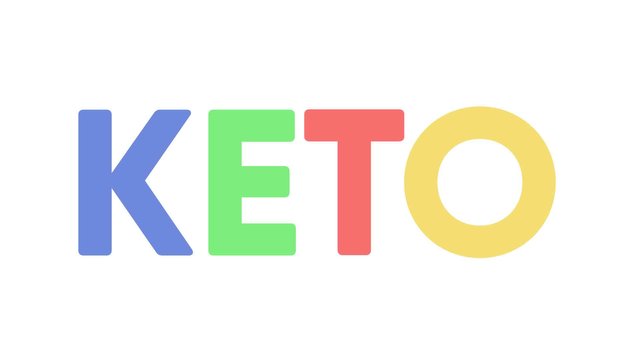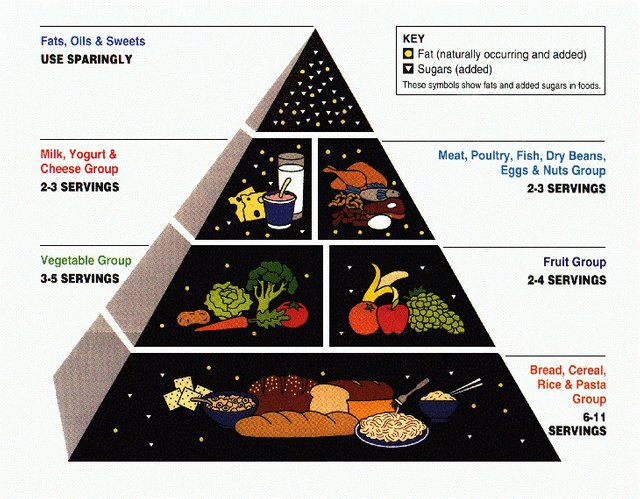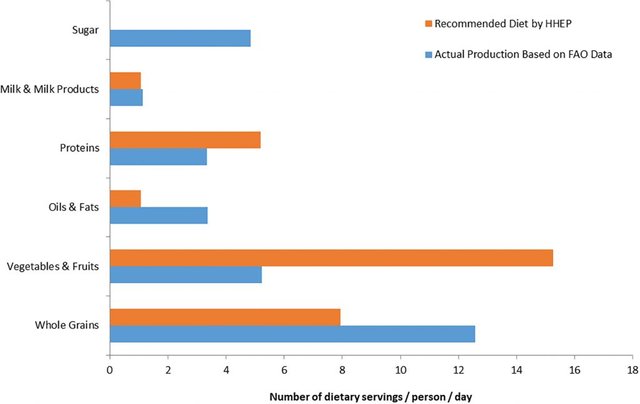My Experience With The Ketogenic Diet - Your Guide to Keto

I have been seeing keto getting much more mainstream media coverage lately and this brought up some giddiness in me. Although I'm no longer on the keto diet due to my current living situation, I was on the diet for a year and it was an overall very good experience that I would definitely recommend as more than the fad diet it is accused of being.
What is Keto?
The ketogenic diet was originally developed in the medical field to treat epilepsy in children. Use of the ketogenic diet to treat epilepsy even showed permanent effects after the diet was discontinued. However, as anticonvulsant medications became available, the use of the ketogenic diet as a medical treatment began to lose popularity.
One of the main caveats of the ketogenic diet is that it is a high-fat, low-carbohydrate diet. The original macronutrient profile of the ketogenic diet developed in the 1920s saw a 4:1 ratio consumption of fats over the combined intake of carbohydrates and protein. Key to the ketogenic diet is that you are no longer utilizing any sugars for energy and controlling the release of insulin. There are similar low carb diets such as the Atkins Diet, however these diets do not trigger ketosis in the body.
Understanding the ketogenic diet requires the understanding of two concepts. First, our bodies are capable of primarily utilizing two forms of energy, sugars or fat. The second is that much of what we have been taught in terms of our health in relation to the consumption of fats is wrong.
Weight loss on the ketogenic diet contrary to the belief of some, still requires a calorie deficit. Your body has no use of consuming preexisting fat cells if you are already consuming more than your body requires to function (Basal Metabolic Rate | BMR). It is argued that because your body is now using fats as the primary source of energy, the process of releasing fat cells from existing fat reserves is more streamlined. However, there are studies that show this is not true.
Science of Keto
The ketogenic or keto diet is named due to the metabolic state your body enters while on the diet, which is called ketosis. Ketosis occurs when your body switches over to primarily metabolising the fats entering or existing our systems instead of glucose. In fact, one way to enter ketosis is by fasting.
Because you are consuming very low levels of carbohydrates and sugars, the low levels of glucose in your bloodstream reduce the insulin necessary to metabolize that glucose. Instead, your liver begins converting fat cells into fatty acids and ketones. The fat stored in your liver is limited, so once that runs out, the process begins releasing fat cells from your existing fat stores. These ketone bodies become your body's replacement for glucose as its primary source of energy.
First, our bodies are capable of primarily utilizing two forms of energy, sugars or fat. The second is that much of what we have been taught in terms of our health in relation to the consumption of fats is wrong.
The primary reason keto works as a weight loss solution has a lot to do with glucose and glucose toxicity (Hyperglycemia). Glucose toxicity is the main culprit behind the dangers of diabetes and also a reason keto has been utilized to manage Type-2 Diabetes. If there is too much glucose in our bloodstream, this is toxic to the body and the release of insulin to metabolise that glucose is thus paramount.
Since too much sugar in our bloodstreams is dangerous, when you are utilizing glucose as your primary source of energy, there is actually a secondary process occurring.
Your body is actively restricting the release of fat from your fat stores because it needs to prioritize the metabolization of glucose to prevent glucose toxicity.
Due to this conundrum of glucose toxicity, insulin needs to rid your bloodstream of glucose quickly. Since your cells only require a finite amount of energy at the time, glucose in your bloodstream that is not necessary for your current energy needs is instead converted to fat. Simultaneously, a lipoprotein is putting this fat into your fat stores and preventing any fat from leaving fat stores.
When in ketogenic state, the release of insulin is controlled at lower levels because there is no longer the risk of glucose toxicity. Removing this risk also means there less of a reason to prevent the release of fat cells from their prisons.
Keto, Cholesterol, and Heart Disease
A lot of the pushback I've seen against keto is the idea that fats are incredibly bad for our bodies, increases our cholesterol levels, and thus increases our chance of heart disease and other ailments. This idea mostly derives from the lipid hypothesis, also known as the cholesterol hypothesis, which says cholesterol come from fats and these cholesterol levels cause heart disease.
The lipid hypothesis is widely accepted by the majority of those in the medical field and low fat diets are still recommended by major health organizations such as the American Heart Association and the Center for Nutrition Policy and Promotion.
I would hate to fall into the category of conspiracy theory, but my opinion on this would be considered fringe because I just do not believe the lipid hypothesis is correct. Granted there is much more support coming out for low carb high fat diets, the mainstream nutritionists still rejects this science.
Maybe Not All Fats
Studies have come out that contradict the lipid hypothesis, however these studies have yet to dethrone the lipid hypothesis from its seat as the main ideology for most major health organizations.
A meta-analysis of prospective epidemiologic studies showed that there is no significant evidence for concluding that dietary saturated fat is associated with an increased risk of CHD or CVD. More data are needed to elucidate whether CVD risks are likely to be influenced by the specific nutrients used to replace saturated fat.
-NCBI
The major difference in consumable fats are trans fats and saturated fats. Saturated fats get a lot of negativity and mostly come from natural fat sources like red meat.
Bad cholesterol is actually caused by trans fat which rarely occurs naturally. Trans fats are produced from vegetables and come in the form of products such as corn oil or margarine. Originally pushed as a healthy alternative to saturated fats, it is now universally shunned. For example, McDonald's stopped the use of trans fat oils in 2008. The World Health Organization also launched a plan in May 2018 to eliminate trans fat from the entire world's food supply.
Sugar, Sugar, Sugar!
When the lipid hypothesis was put forward, John Yudkin, a British professor of nutrition, had also made the claim that sugar was the true culprit to our health woes. Yudkin was ridiculed and shunned from the scientific community, passing away largely forgotten.
I hate to say that it is some sort of new revelation that sugar is bad for us. A Google image search of the term "fatty foods" show us the common denominator is not fat but instead carbohydrates. Beyond being common sense, even the major health organizations were well aware of this fact.
Taking a look at the USDA's historical food pyramid is something I find to not only be infuriating, it also makes no logical sense.

USDA Food Pyramid (1992) - Replaced in 2005
Going on what has already been stated about our bodies ability to utilize two forms of energy, this pyramid is reflecting that same thing to you, but in a very lopsided manner.
At the top of the pyramid in which you are told to "USE SPARINGLY", one of those is Sweets. That is because as is well known, sugar is bad for you.
The problem is that the bottom of the pyramid consists entirely of carbohydrates, which our body primarily breaks down into glucose. Net carbs are the amount of carbs in a food that can actually be broken down by the body. Since our bodies are not capable of breaking down fiber, consuming a carbohydrate that contains fiber means only the net carbs are digested. Although some of the represented food categories consist of carbohydrates in the form of fiber, every single category actually contains carbohydrates our bodies can break down into glucose.
In other words, you were being told to limit your sugar intake whilst simultaneously being told a healthy diet should consist primarily of sugars in another form. This pyramid is reflected even outside of the US and the same logic is applied.

Hong Kong Department of Health
The Sugar Conspiracy
Many of the critique against the keto is the fact that the lipid hypothesis is so widely accepted by most major health organizations. Is it possible so many scientists, nutritionists, and doctors are part of some huge conspiracy?
I am in no position to make any conclusive claims, but maybe there is a reason so much of the existing information is accepted.
Biased research is a real thing that we see often. Probably the most infamous would be the oil industry's denial of climate change. Exxon was well aware of climate change as early as 1977, but purposely hid that information while spending millions funding a misinformation campaign.
Similarly there are studies funded by the Sugar Research Foundation (SRF) that purposely hid the connections between cardiovascular disease and sugar.
More and more research is coming out that most fats have no connection to heart disease.
Financial Motivations
Less a conspiracy and more of the reality of the situation is the fact that it is much easier to produce carbohydrates than it is to produce fats. This is clearly shown by exactly how much whole gains we produce globally.
A recent study published on current worldwide food production actually shows a problem which is much bigger than the study indicates.

© 2018 KC et al.
According to the report, even if we based our diets on the recommended guidelines from the US Department of Agriculture and Health Canada's Food Guides, we produce 150 million more hectares of carbohydrates than we need.
Agriculture is a big business and could easily be the culprit behind this push against fats. Fats are also much less friendly for the environment, the animals themselves, and is much more expensive to produce.
This provides motive as to why there could be an invisible hand guiding the discussions.
Why Keto Can Work For You
Keto takes you full throttle on the path that accepts sugars are bad for us and rejects the lipid hypothesis.
Duration of the diet also has shown that there are not any detrimental effects. A study published by the John Hopkins Children's Center monitored people aged from 2 to 26 years that were on the ketogenic diet for a minimum of sixteen months up to eight years.
Despite its temporary side effects, we have always suspected that the ketogenic diet is relatively safe long term, and we now have proof
-Eric Kossoff, M.D.
My personal experience with keto was that it was not really a diet, it was a lifestyle change that I honestly felt I could stick with for the rest of my life. The oft-reported effects of the ketogenic diet are increased energy, a lower appetite, and better memory.
Some of the reported negative side effects are constipation and vomiting, but most of this was due to the old methodology of the diet which also restricted fluid intake. Modern use of the keto diet generally recommends drinking a lot of water.
The science for this mechanism is the carbohydrate-insulin hypothesis, which has shown there is actually no conclusive proof that is is more effective than any calorie restrictive diet. Since the carbohydrate-insulin hypothesis is not conclusive, the actual benefits of keto can be debated. I would contend that the positive reported side effects, such as reduced appetite are certainly a move in the right direction.
Money Matters
Another common concern I see with the ketogenic diet is the cost which is not actually a problem with the diet at all. In an attempt to budget my financials, I managed to spend $50 USD for an entire month's worth of food.
Due to the dangers of trans fats, that meant no margarine or most vegetable oils even though they are cheaper alternatives. However, one of the mistakes about keto is that you are eating pure fats when in reality you still need to eat your leafy greens. Vegetables like broccoli and spinach should be a part of your diet anyway, so the cost factor for these don't change.
Budget shopping meant hunting for deals, buying ground beef in bulk, and supplementing a lot of fat from butter or other fatty oils. In the end, my appetite was reduced to a level that eating became more of a chore and thus it became even easier to budget food costs.
Diving into keto communities also gave me some helpful tips that were useful when eating on the run. Did you know you can order every single item at McDonald's a la carte? That means you can order beef patties, cheese slices, and even lettuce. Although not the most nutritious food options, they can be a life saver in a crunch.
No Cheat Days
Keto was incredibly easy for me to stick to for one primary reason (besides my love for fatty foods!), the Keto Flu. As your body transitions to utilizing fats as your primary source of energy, you are inevitably going to start feeling the effects of hypoglycemia, or low blood sugar.
Although the effects vary from person to person, they generally include flu-like symptoms and reduced energy levels. Called the Keto Flu, these symptoms typically lasts from 1-2 weeks and also referred to as the induction period.
Once your body fully enters ketosis, then you are good to go. There are ways to test this with keto strips, but I did not find this necessary as the entering of ketosis seemed pretty obvious to me. However, the keto flu was an atrocious period for me and was my main motivation in never cheating.
If you cheat and trigger an insulin response in your body, then you have basically hit the reset button on ketosis and must endure the induction period once again.
Being steadfast becomes much easier when you have the constant motivation from fear of the keto flu. My ability to stick to keto also came from the fact that it was just easy and this ended up being a gateway diet for me in the sense that it has become much easier for me to control my nutrition. Keto is not for everybody, but it was a game changer for me and something that comes highly recommended.
As a final note, I lost 40 lbs (~18 kg) while on the keto diet for a year including one cheat day.
Posted from my blog with SteemPress : https://leonox.me/2018-12-27/posts/my-experience-with-the-ketogenic-diet-your-guide-to-keto/

Thank you so much for sharing this amazing post with us!
Have you heard about Partiko? It’s a really convenient mobile app for Steem! With Partiko, you can easily see what’s going on in the Steem community, make posts and comments (no beneficiary cut forever!), and always stayed connected with your followers via push notification!
Partiko also rewards you with Partiko Points (3000 Partiko Point bonus when you first use it!), and Partiko Points can be converted into Steem tokens. You can earn Partiko Points easily by making posts and comments using Partiko.
We also noticed that your Steem Power is low. We will be very happy to delegate 15 Steem Power to you once you have made a post using Partiko! With more Steem Power, you can make more posts and comments, and earn more rewards!
If that all sounds interesting, you can:
Thank you so much for reading this message!